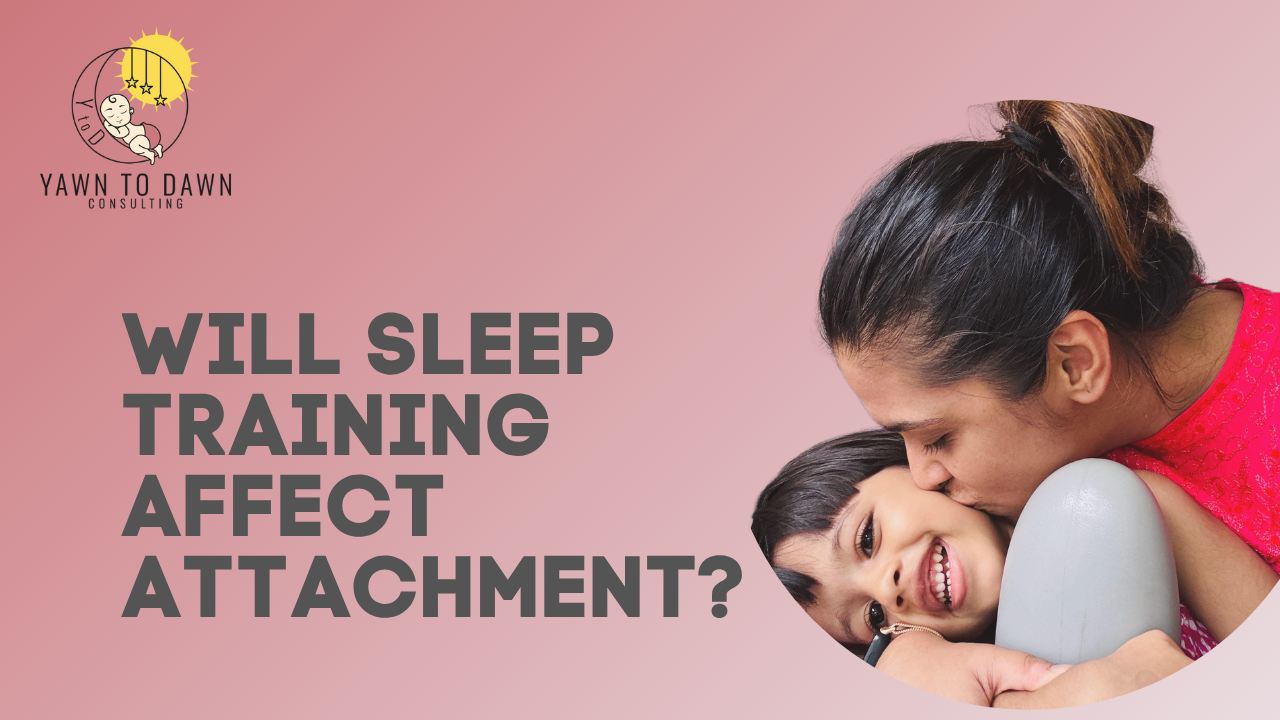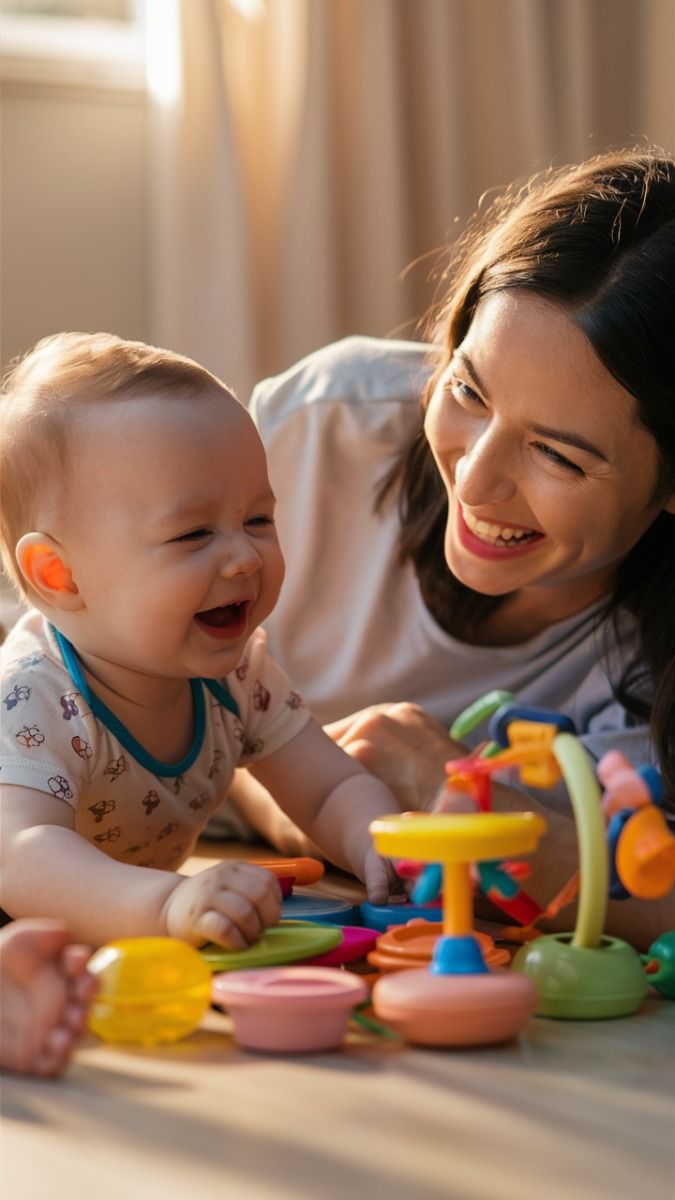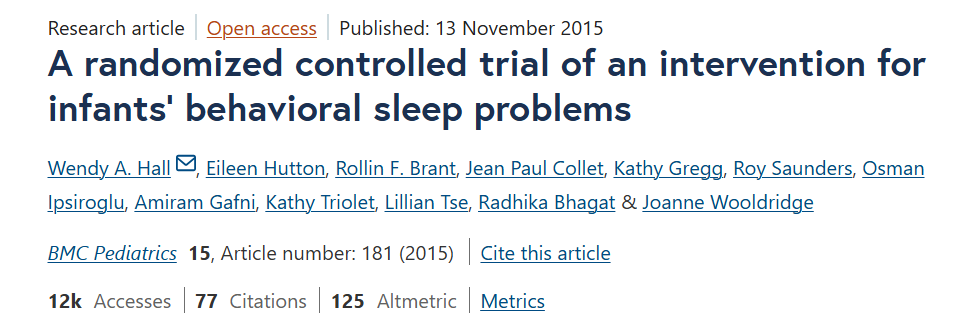Will Sleep Training Affect Attachment? What the Research and Real Life Says
Jun 26, 2025
You want to help your baby sleep, but the internet keeps warning you:
“Sleep training will ruin your bond.”
“Your baby will stop trusting you.”
“Crying means they feel abandoned.”
As a certified pediatric sleep consultant, I hear these fears all the time. And I get it. Nothing matters more to you than the connection you share with your baby.
But here’s the thing: that connection is stronger and more resilient than these fears make it seem. In fact, science tells us something very different.
Let’s break it all down.
What Is Secure Attachment?

Secure attachment is the emotional bond that forms when a child knows they can rely on their caregiver to meet their physical and emotional needs. It’s what gives your child the inner sense of:
“I am safe. I am loved. I can explore the world, because my parent will be there for me if I need them.”
This bond is foundational. It’s not just about comfort during infancy it shapes how children relate to others, manage emotions, and handle stress for the rest of their lives.
This is one of the main reasons why many parents who are exploring sleep training baby techniques pause and worry because they care so deeply about this bond.
Why Secure Attachment Is So Important
Children with secure attachment tend to:
- Develop healthy self-esteem
- Form strong relationships
- Handle difficult emotions better
- Perform well in school and social environments
That’s why when I work with families whether they’re in India, the U.S., or going through sleep training Singapore programs the goal is always to improve sleep while strengthening connection.
How Does Secure Attachment Form?
It forms through daily, consistent, responsive care. That means:
- Picking them up when they’re hurt or scared
- Responding to their needs most of the time
- Offering comfort, connection, and calm not perfection
This is true whether you're room-sharing or using a crib, whether you're babywearing or not, whether you’re breastfeeding or bottle-feeding, and yes even if you decide to sleep train.
When I speak with clients during baby sleep training Singapore consultations, this is often their biggest “aha” moment. Attachment isn’t built or broken at bedtime it’s a full-day, full-life thing.
How Do You Know Your Baby Is Securely Attached?
There are signs:
- Your baby cries when you leave but calms when you return
- They explore their surroundings, but check back in with you
- They seek you out for comfort when upset
- They smile, cuddle, and show joy in your presence
These are signs I see in babies every day even in families who’ve done sleep training in India or who work with a sleep consultant Singapore based like myself.
Attachment Parenting vs. Secure Attachment: What’s the Difference?
Many people confuse attachment parenting with secure attachment but they’re not the same.
Attachment parenting is a specific philosophy that emphasizes near-constant physical closeness like co-sleeping, babywearing, and feeding on demand.
But secure attachment? That’s broader. It’s about emotional availability and consistency not a rigid parenting style.
Parents working with a sleep trainer Singapore might assume they’re harming that bond just because they’re encouraging more independent sleep. But secure attachment isn’t about avoiding crying it’s about responding with love and intention.
You can sleep train, set boundaries, and still raise deeply connected children.
What Do Studies Say About Sleep Training and Attachment?
1. The 5-Year Follow-Up Study by Hiscock et al. (2012)

Researchers followed families five years after sleep training and found:
- No difference in emotional or behavioral outcomes between kids who were sleep trained and those who weren’t
- No negative impact on attachment
- Improvements in parental mental health
I’ve seen the same with families I’ve worked with in baby sleep consultant Singapore programs and even those I supported virtually during sleep training India.
2. Hall et al. (2015)

This randomized trial showed:
- Babies slept better
- Parents had less anxiety and depression
- No disruption to the attachment bond
If you’re wondering how to sleep train baby without losing your connection—this kind of research shows it’s possible, and safe.
3. Gradisar et al. (2016)

This study tracked babies’ cortisol levels (stress hormone) and found:
- Cortisol actually decreased as babies got more consolidated sleep
- No long-term stress or behavioral issues were noted
- Babies slept longer and more peacefully
Again, for parents working with a sleep consultant Singapore or doing sleep training baby routines at home, this evidence brings peace of mind.
But What About Real Life?

I sleep trained my daughter when she was 6 months old.
Before that, I was a mom-bie. I barely slept. I napped all day while my baby stayed with other caregivers because I was up all night with her. I was frustrated. Foggy. Not the mom I knew I could be.
After sleep training, I could show up in my best capacity. I felt more present, more joyful, more connected.
And guess what?
She is deeply, securely attached to me.
I am her safe space for everything.
And yet—she still falls asleep in her own bed, on her own, and sleeps through the night.
Sleep training didn’t ruin our bond. It restored me so I could nurture it.
Can Sleep Training Strengthen Attachment?
Yes. Here’s how:
- Parents sleep better, feel better, and parent better
- Babies sleep better, are calmer during the day, and become more emotionally regulated
- Relationships improve sleep helps couples reconnect too
Every time I guide a parent through a sleep train plan whether they're in Singapore or somewhere else—I’m not just helping them with bedtime. I’m helping them reclaim peace in their home.
Secure attachment doesn’t crumble with a few nights of sleep training.
It’s built in the long haul in hugs, eye contact, routines, and laughter. It’s strengthened when you are rested and ready to respond with love.
And baby sleep training, done well, can be part of that journey not a threat to it.
Ready to Begin?
If you’ve been up late Googling “baby sleep training Singapore” or “how to sleep train baby”, you’re in the right place.
You don’t have to do this alone.
Visit our website: Yawn to Dawn Consulting
As a certified baby sleep consultant Singapore families trust, I’ll help you build sleep and connection together.
References
Hiscock, H., et al. (2012). Five-year follow-up of a behavioral sleep intervention: Randomized trial. Pediatrics, 130(4), 643–651. https://doi.org/10.1542/peds.2011-3467
Hall, W. A., et al. (2015). A randomized controlled trial of an intervention for infants’ behavioral sleep problems. BMC Pediatrics, 15, 181. https://doi.org/10.1186/s12887-015-0509-5
Gradisar, M., et al. (2016). Behavioral interventions for infant sleep problems: A randomized controlled trial. Pediatrics, 137(6), e20151486. https://doi.org/10.1542/peds.2015-1486


